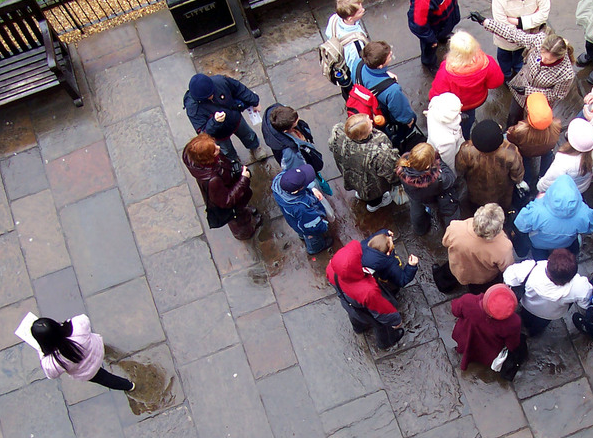The best sort of politics

We, modern humans, are the benefactors of millennia of political experimentation. We know the effects of tribalism, monarchism, feudalism, imperialism, liberalism, conservatism, socialism, communism, and countless other ideologies. One would think we'd have politics figured out by now. Yet somehow modern politics leaves us feeling overwhelmed and furious. Something is wrong.
After so many chieftains, kings, emperors, presidents, and "great leaders," we ought to know the way to rule. After so many millions of lives, oceans of suffering, and ages of terror, we ought to have found the path of peace. But we have not.
Consider yourself the prime example. Do you agree with everything your political system produces? Every law? Every tax? Every welfare program? Every war? No. You abhor some of them. Yet they continue to happen despite your objections. And that is the problem.
The definition of politics is: "the process of making decisions applying to all members of each group." If our politics produces decisions we despise, let's find a better way. Let's ask: What is the best process of making decisions that apply to everyone?
Mankind has wrestled with this question since the dawn of time. We have not overcome it because it's a misleading question. It's a riddle. But the answer is obvious. History books hide it in plain sight. After all, what are history books but stories of men imposing and resisting political decisions? Of men fighting and dying over politics? History proves it doesn't take much to provoke men to outright war. Consider our own nation. Taxes on mundane goods like sugar and stamps provoked American colonists into war with England. One great lesson of mankind's political history is clear. Mankind has little tolerance for politics. Politics itself is the cause of our discontent.
A single person can have a decision imposed on them that fits so perfectly it doesn't feel like an imposition. It feels like his own. But can two people? Ten? A thousand? The larger and more diverse a group, the worse any single decision can fit it. Ill-fitting decisions mis-allocate resources, cause hardship, and breed resentment. They represent practical and moral wrongs committed against everyone who does not agree. They brew the very same negative feelings you currently feel about your politics.
Yet somehow the average person continues to believe politics is essential, and strife is normal. This is why both politics and strife endure. We accept politics, and thus must accept the strife that comes with it.
The simple, obvious answer is to avoid politics wherever possible. To stop imposing political decisions on people. What is the best process for politics? The process least used.
This was the great revelation of the Enlightenment. Not only are individuals the only ones with the moral right to make decisions for themselves. They are the ones who make the best decisions. Their decisions for themselves are far more efficient, effective and happy than decisions imposed on them by strangers. If an individual suffers from a bad decision he has made for himself, he has no one to blame, resent, or make war against. Yet individual empowerment - anti-politics - is the only form of politics mankind has yet to truly pursue.
In short, we can have peace when we stop creating strife. And we will stop creating strife when we stop recognizing anyone's authority to create it. No person or government has the right to impose harm on peaceful people. If your politics has produced something you stand against, then your politics is almost certainly wrong. It is not a matter of what you object to, but that your politics forces it on you.
So if politics is going to be as little-used as possible, what does that leave in its domain? Only what we all agree on. In other words: very little.
